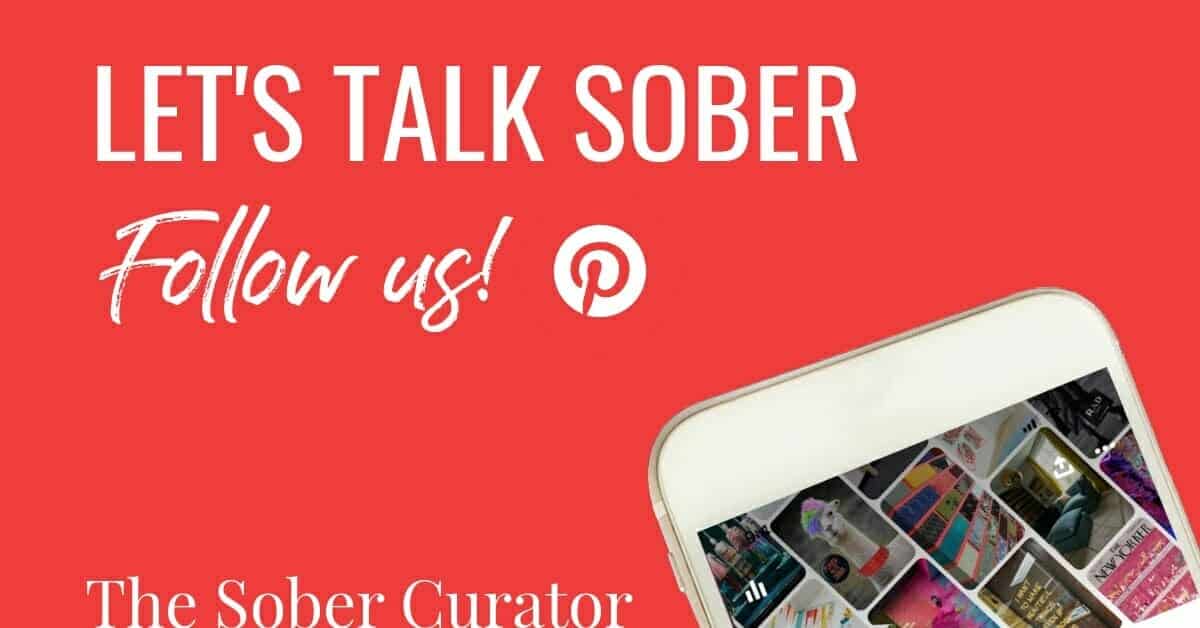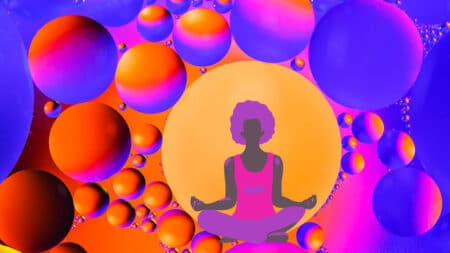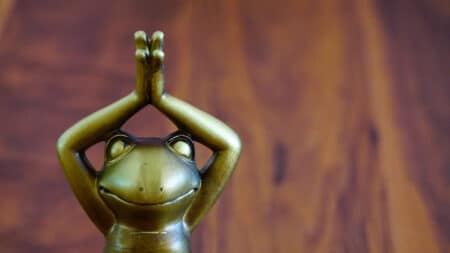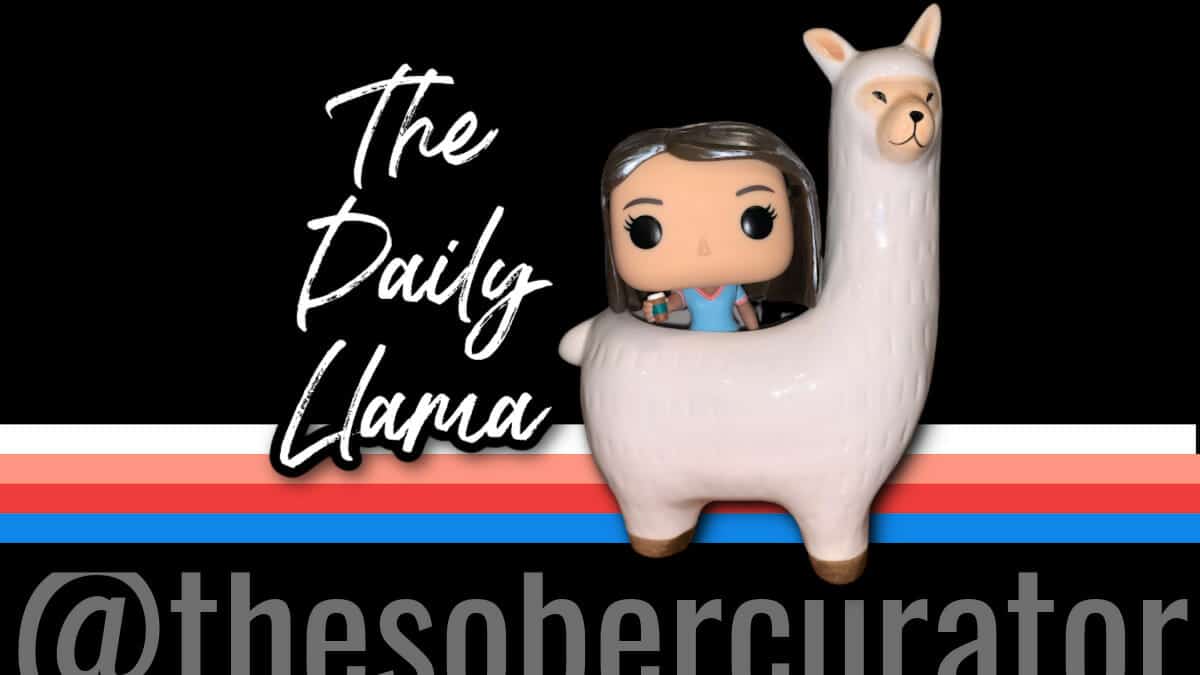
The Daily Llama, by Staci DesRault, brings you short, one-word meditations and a corresponding quote plus a reflection for your complete wool-being (#seewhatwedidthere?) for Monday, August 7th – Friday, August 11th, 2023.
MONDAY, AUGUST 7TH
WORD OF THE DAY: INFORMED
QUOTE OF THE DAY:
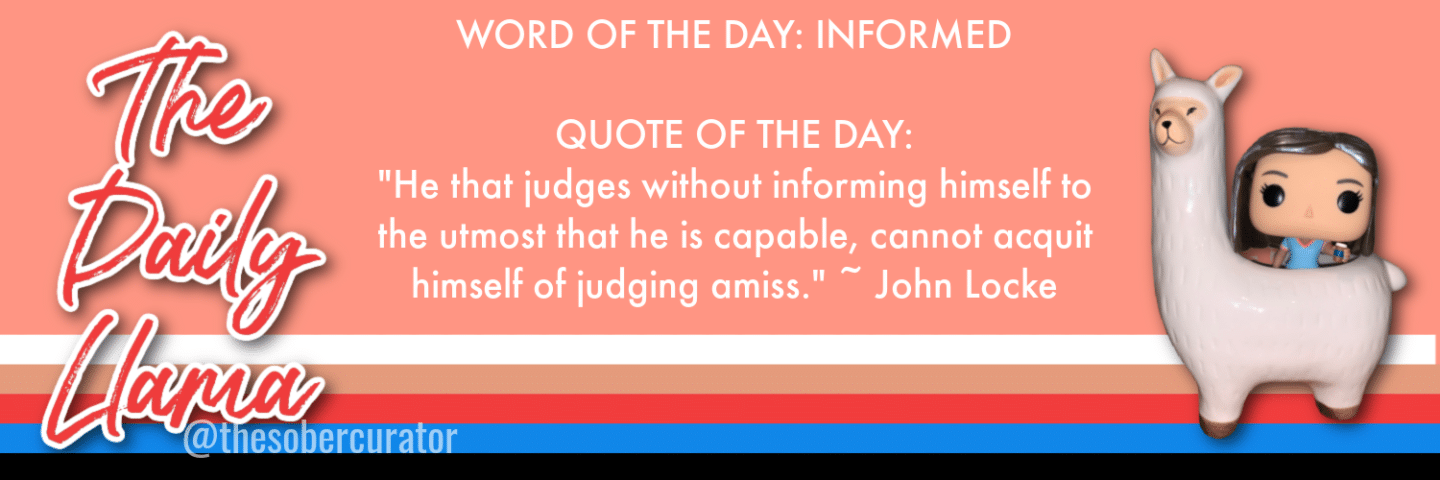
MEDITATE ON THIS:
It is a challenging task these days to be well informed. The benefit of being well-informed is that we are better equipped to make thoughtful decisions, and through consistently thoughtful decisions, we develop trust in ourselves. The downside is that wading through too much information can quickly become overwhelming and disheartening, leading to burnout or despair, particularly for those of us prone to anxiety, depression, or post-traumatic stress.
We live in an information-saturated society, and it does not look like this will change at any time in the near future. The best strategy for staying informed enough to make good decisions (but not too much to endanger our mental health) is to carefully cull what we listen to or read and limit our exposure to excessively sensationalized newscasts.
Judging a situation, an issue, or a person before we have adequate information will likely lead to errors on our part.
TUESDAY, AUGUST 8TH
WORD OF THE DAILY: PERCEPTION
QUOTE OF THE DAY:
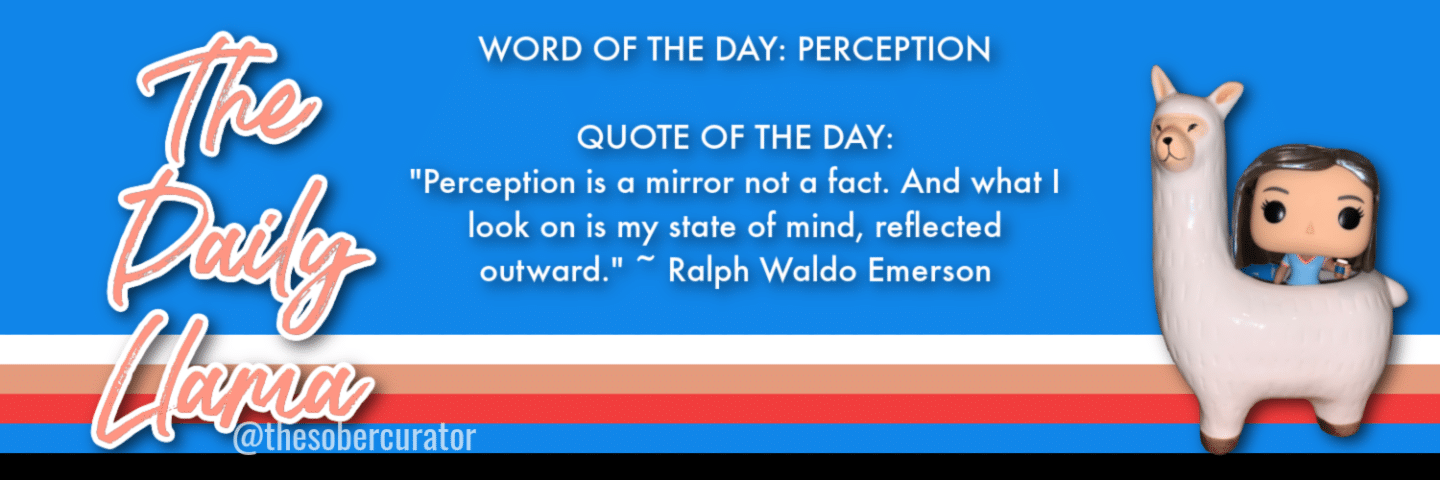
MEDITATE ON THIS:
Researchers in psychology, sociology, and behavioral economics have identified several types of cognitive biases that influence how people perceive and remember events, consume and filter information, and make decisions and conclusions about the world in which they live. Thus, our perceptions reveal not what is but reflect what is happening inside us.
Our perception of the world is primarily shaped but by our past experiences, genetic predispositions, knowledge, emotions, cognitive distortions, and preconceived notions. What we perceive is not reality, but it can quickly become our reality.
It takes a bit of bravery, a lot of vulnerability, and a lot of effort to confront how we think about things. That is probably why so many people choose not to do it.
Discovering our cognitive biases and distortions may be painful, but it is not harmful. It’s, but just the opposite, and it is the work that can help heal us.
Interested in learning more about your biases? Try taking a MasterClass HERE
WEDNESDAY, AUGUST 9TH
WORD OF THE DAY: DISCERNING
QUOTE OF THE DAY:
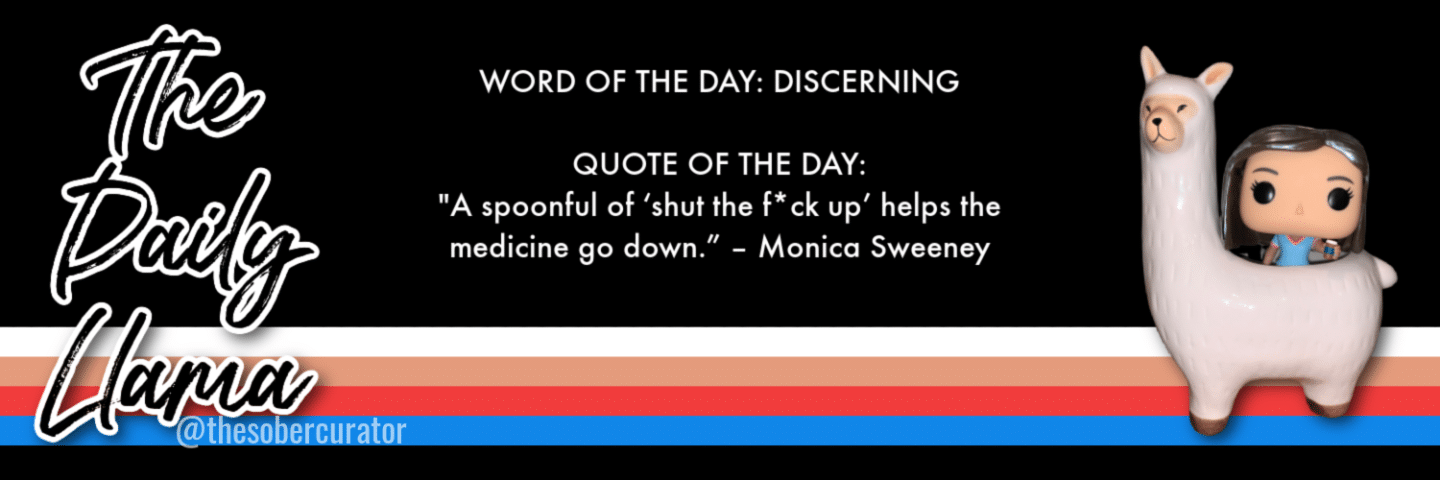
MEDITATE ON THIS:
Here’s a fun fact from the research: the mean average amount a person speaks daily is around 15,000-17,000 words. The quietest among us may only articulate about 800, while the chattiest gabs at a rate of 47,000 words daily. (The research shows that the gender of the person speaking does not make much difference.)
Knowing what to say can be challenging, but knowing when to say it takes discernment. As Mark Twain wrote, “The right word may be effective, but no word has ever been as effective as a rightly timed pause.” A foundational skill in recovery is having the serenity to remain silent, the courage to speak up when needed, and the wisdom to know the difference.
Where in your life could you practice greater discernment about what you say? What relationship in your life would benefit the most if you listened more than you talked?
THURSDAY, AUGUST 10TH
WORD OF THE DAY: CONSCIOUS
QUOTE OF THE DAY:
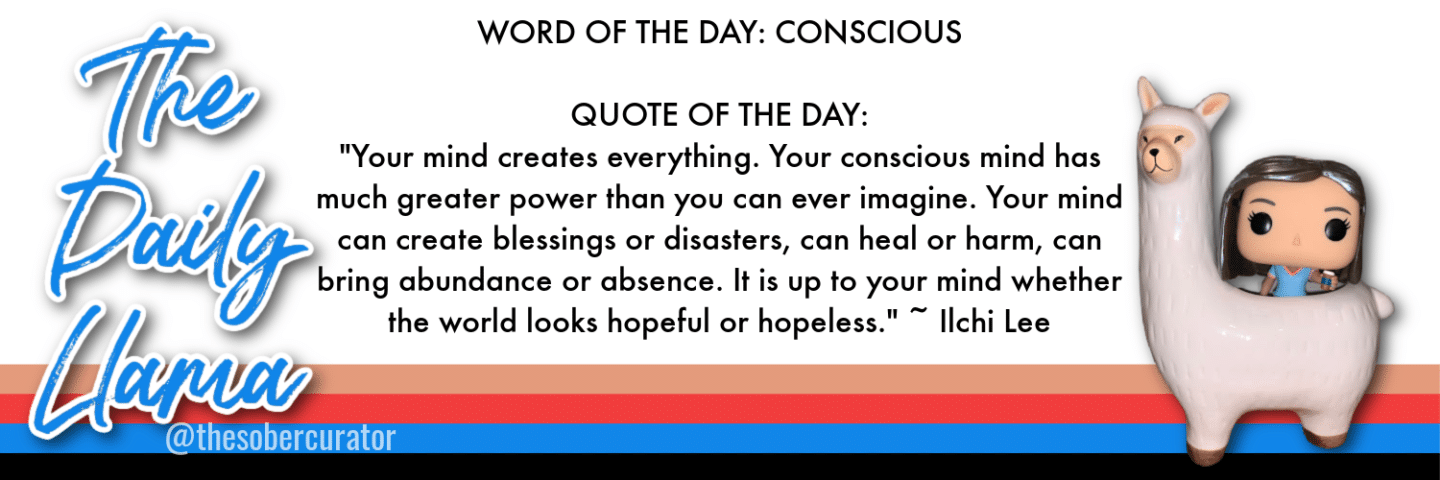
MEDITATE ON THIS:
“Your mind creates everything. Your conscious mind has much greater power than you can ever imagine. Your mind can create blessings or disasters, can heal or harm, can bring abundance or absence. It is up to your mind whether the world looks hopeful or hopeless.” ~ Ilchi Lee
MEDITATE ON THIS: Dr. Caroline Leaf, Communication Pathologist, Neuroscientist, and author of Switch on Your Brain, describes the difference between our brain and our mind. She writes, “The mind is separate, yet inseparable, from the brain.” She clarifies that the mind is energy and creates energy through the actions of thinking, feeling, and choosing and that the brain is the physical structure through which the mind works.
By directing the energy of our mind, we can work to change the physical structure of our brain. This is the process known as “neuroplasticity.” She points out that our brains never remain the same and constantly change with every experience and how we think, feel, and choose action in response to those experiences. We can learn how to manage our minds and bring balance back to our brains through awareness.
In short, we can direct our healing process through how we think, how we feel, and our choices of action. We can transform our lives through the renewal of our minds.
Sober Curator Pro Tip: Check out her books HERE.
FRIDAY, AUGUST 11TH
WORD OF THE DAY: APPRECIATIVE
QUOTE OF THE DAY:
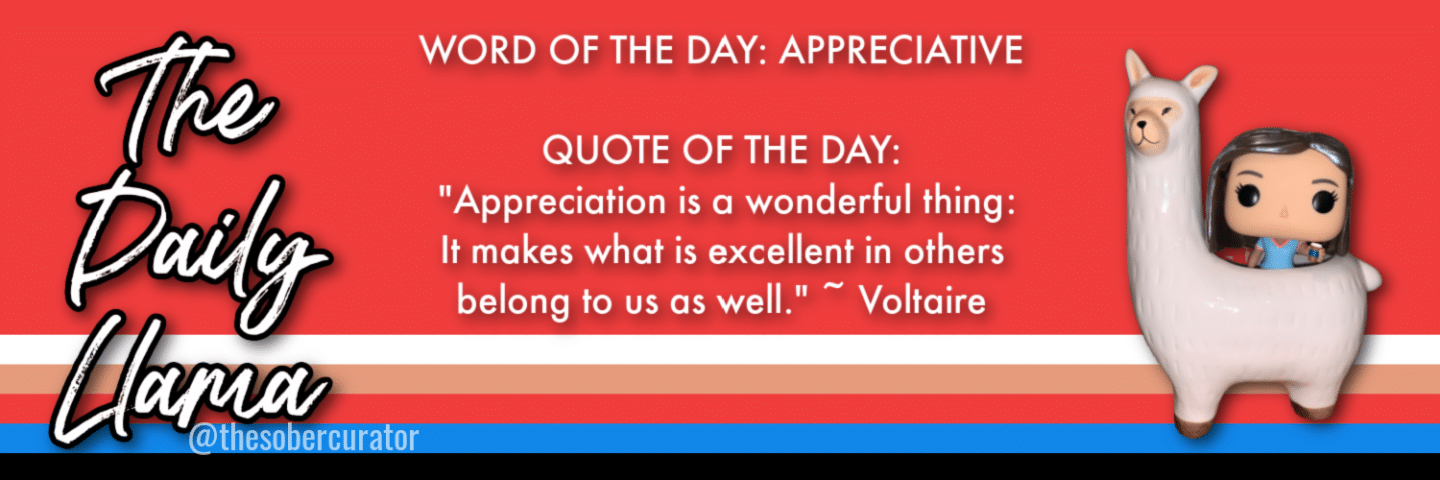
MEDITATE ON THIS:
Coming soon Another way to incorporate a practice of gratitude in our lives is to be appreciative of the people in our lives. We become more emotionally mature when we move beyond feeling grateful not just for what they do for us, but we feel appreciated for who they are as people. Genuine appreciation acknowledges that we are not entitled to anything; everything we receive from others is a gift. We cannot have an entitled mindset and be genuinely appreciative at the same time.

Resources are available
Resources Are Available
If you or someone you know is experiencing difficulties surrounding alcoholism, addiction, or mental illness, please reach out and ask for help. People everywhere can and want to help; you just have to know where to look. And continue to look until you find what works for you. Click here for a list of regional and national resources.
